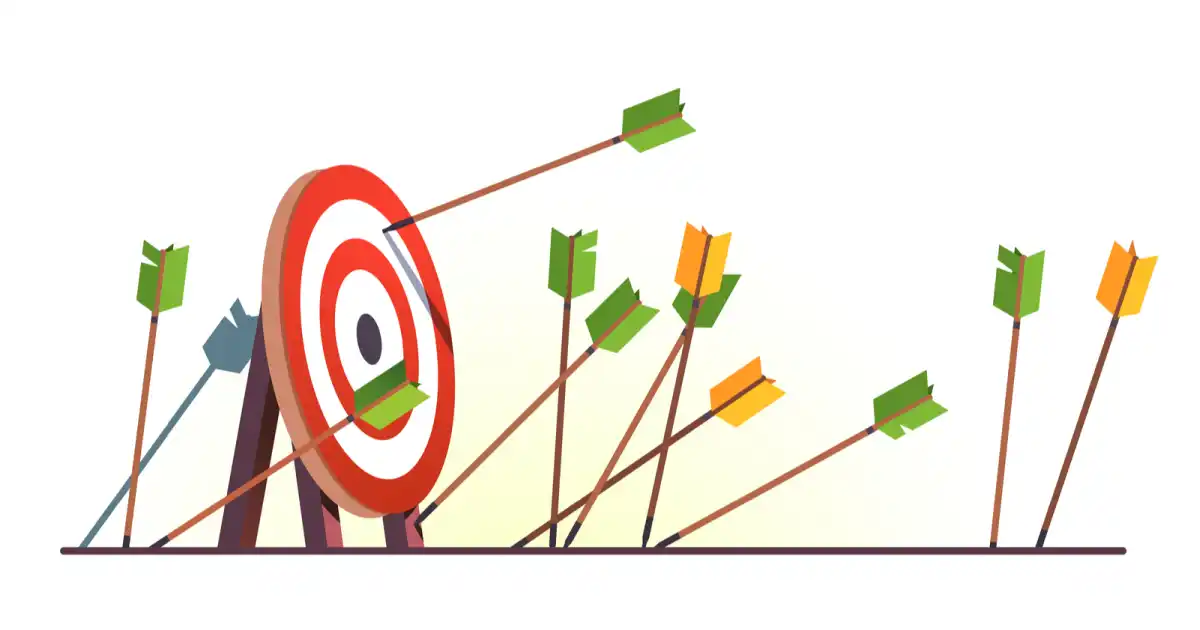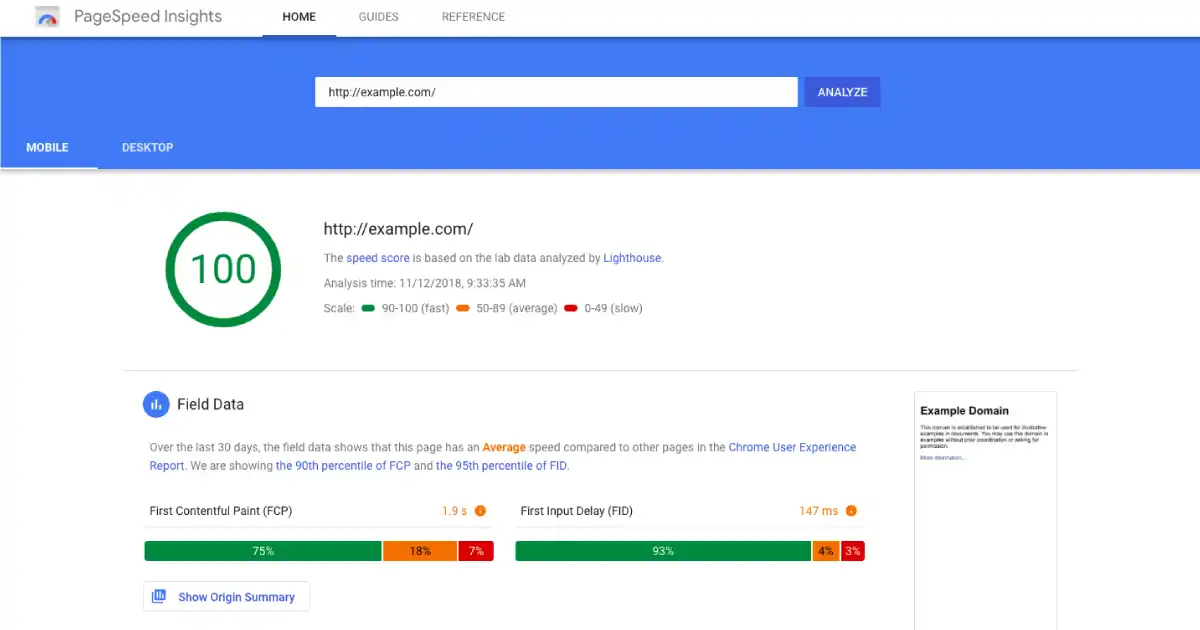So why do you need to know about SEO Mistakes?
Imagine you’ve spent hours optimizing your website for search engines. You’ve written great content, optimized your titles and meta descriptions, and built backlinks. You’re confident that your website is now ready to start ranking for the keywords you’re targeting.
But then, you check your Google Analytics and see that your traffic is still stagnant. You’re starting to get frustrated. You’ve done everything right, so why don’t you see any results?
If this sounds familiar, you’re not alone. Many businesses make common SEO mistakes that can cost them valuable traffic and conversions.
That’s why today we’re going to share some most common SEO mistakes marketers make and tips on how to avoid them.
Why We Should Be Aware of SEO Mistakes in 2024
In 2024, being aware of SEO mistakes is more important than ever as search engines constantly evolve their algorithms, and what works today may not work tomorrow.
In addition, the way people search is changing, with more and more people using voice search and mobile devices.
Even Google is placing a greater emphasis on user experience, so websites that are not user-friendly will be penalized.
And there is more competition for search engine traffic than ever, so businesses need to do everything possible to improve their SEO.
Most importantly, SEO mistakes can be time-consuming and expensive to fix. It is much easier to avoid making mistakes in the first place.
Let’s See Where Most SEO Make Mistakes
SEO is a complex and ever-changing field, but even experienced SEO experts make some common mistakes. Here are a few of the most common mistakes–
 Target wrong intent keywords
Target wrong intent keywords
Not all keywords are created equal. Some keywords have a high search volume but don’t have the right intent for your business. For example, if you’re a dentist, you might want to target the keyword “dentist”.
How to fix:
This keyword has a high search volume because people are looking for information about dentists in general.
To target the right intent, you need to be more specific with your keywords, such as “dentist in San Francisco”.
Targeting high-traffic keywords only
While targeting the most popular keywords is tempting, they are often very competitive and difficult to rank for. If you’re not careful, you could end up wasting your time and resources trying to rank for these keywords.
How to fix:
Instead of focusing only on high-traffic keywords, you should also target long-tail keywords. Long-tail keywords are less competitive than high-traffic ones but can still drive traffic to your website.
For example, instead of targeting the keyword “shoes,” you could target the long-tail keyword “mens running shoes.
Lack internal Linking
Internal linking is a way to connect different pages on your website together. This helps Google understand your website’s structure and crawl your pages more effectively. You can improve your internal linking by adding links to related pages throughout your content.
How to fix:
To improve your website’s internal linking, you must ensure all of your pages are linked to other pages. You should also use relevant keywords in your anchor text.
Just depend on backlinks
Backlinks are links from other websites to your website. They are important but not the only ranking factor.
You can also improve your SEO by creating high-quality content, optimizing your website for mobile, and using social media effectively.
End of the day, you must remember there is no one-size-fits-all approach to SEO. The best way to improve your SEO is to stay up-to-date on the latest trends and to experiment with different techniques.
How to fix:
Rather than backlinks, you should also focus on other SEO factors, such as creating high-quality content, optimizing your website for mobile devices, and using the right keywords.
By doing these things, you will be able to improve your website’s ranking even if you don’t have a lot of backlinks.
Keyword stuffing
Keyword stuffing is the practice of repeating the same keyword or phrase too many times in a piece of content. This can make your content look unnatural and spammy, and it can also hurt your SEO rankings.
 How to fix:
How to fix:
To avoid keyword stuffing, use your keywords naturally in your content. Don’t try to force them in, and don’t use them too many times. A good rule of thumb is to use your keyword about 1-2% of the time in your content.
You can also use synonyms and related keywords to help you avoid keyword stuffing. For example, if your keyword is “SEO,” you could also use the words “search engine optimization,” “ranking,” and “traffic.”
Not optimizing for mobile
More and more people are using their mobile devices to search the web. If your website is not optimized for mobile, you’re missing out on a lot of potential traffic. Make sure your website is responsive and looks good on all devices.
How to fix:
To ensure your website is optimized for mobile, you need to ensure it looks good and functions well on all devices.
This means using a responsive design that adjusts to the size of the screen and making sure your content is easy to read and navigate on a small screen.
Low-quality content
Low-quality content that is poorly written, irrelevant, or outdated. It can also be content that is plagiarized or duplicated. Low-quality content will not rank well in search results and can damage your website’s reputation.
How to fix:
To create high-quality content, research and write about topics relevant to your target audience. Make sure your content is well-written and error-free. You should also keep your content updated to ensure that it’s always fresh and relevant.
There are many free SEO checker tools that can help you with this.
Pages Not Indexed
One of the most common SEO mistakes is not having all of your pages indexed by search engines. This means your pages will not appear in search results, even if they are well-optimized.
To check if your pages are indexed, you can use Google Search Console. Go to the Indexing tab and see if your pages are listed. If they are not, you can submit a sitemap to Google to help them index your pages.
How to fix:
To fix this issue, you must ensure that all of your pages are properly linked to other pages on your website.
You should also check each page’s title tag and meta description to ensure they are optimized for the relevant keywords.
If the pages are password protected, you need to remove the password protection. And if the pages are blocked by robots.txt, you must add them to the allowed list.
Slow website loading speed
Google has said that page speed is a ranking factor. This means the faster your website loads, the higher it ranks in search results. Having a slow website loading speed can affect your website’s ranking in search results and bounce rate.
 You can use Google PageSpeed Insights to test your website’s loading speed. The tool will give you a score and recommend improving your loading speed.
You can use Google PageSpeed Insights to test your website’s loading speed. The tool will give you a score and recommend improving your loading speed.
How to fix:
There are a number of things you can do to improve your website’s loading speed, such as:
- Compressing images
- Minifying code
- Using a content delivery network (CDN)
- Reducing the number of plugins and scripts
- Hosting your website on a fast server
- No analytics tools
Not using analytics tools is a big mistake for any website owner. Analytics tools can help you track your website’s traffic, see where your visitors are coming from, and what pages they view. This information can be invaluable for improving your SEO and marketing strategies.
How to fix:
- Set up Google Analytics on your website.
- Track your website’s traffic and see where your visitors are coming from.
- Identify your most popular pages and optimize them for search engines.
- Track your conversion rates and see how well your website converts visitors into customers.
Negative Impact of These Mistakes
SEO mistakes can significantly negatively impact your website’s visibility and ranking in search engine results pages (SERPs). This can lead to lost traffic, leads, and sales.
Here are some of the negative impacts of SEO mistakes:
Low website traffic
If your website is not ranking well in SERPs, many people will not see it. This means that you will miss out on potential traffic and customers.
Reduced brand awareness
When your website is not visible in SERPs, it will be less likely to be found by potential customers. This can hurt your brand awareness and make it more difficult to attract new customers.
Increased bounce rate
A high bounce rate means that people are leaving your website quickly after they arrive. This can indicate that your website is irrelevant to their search query or is not user-friendly. A high bounce rate can also hurt your SEO rankings.
Lower conversion rates
A lower conversion rate means fewer people are taking the desired action on your website, such as purchasing or signing up for a newsletter. This can result from SEO mistakes, such as using irrelevant keywords or having a poor user experience.
Penalty from search engines
If you make too many SEO mistakes, the search engines may penalize your website. This can result in your website being demoted in SERPs or even being removed from the index altogether.
Some Proven Tips To Escape SEO Mistakes
So, you’ve read about the common SEO mistakes that even experienced SEOs make. Now, you’re probably wondering how to avoid making those same mistakes. Well, here are some proven best DIY SEO tips to help you escape SEO mistakes:
Do your research
Before you start any SEO campaign, it’s important to research and understand the basics of SEO. This will help you avoid making any major mistakes.
Use the right keywords
When targeting keywords, it’s important to use the right ones. You want
Create high-quality content
This is one of the important things you can do for your SEO. Make sure your content is informative, well-written, and relevant to your target audience.
Use reliable SEO tools
Several SEO tools are available that can help you track your website’s performance and identify areas where you can improve your SEO. Some of the most popular SEO tools include – Google Search Console, SEMrush, Ahrefs, etc.
Track your results
It’s important to track your progress to see what’s working and what’s not. You can use Google Analytics to track your website’s traffic and SEO performance.
Stay up to date on the latest trends
EO is a constantly changing field. This means that it’s important to stay up-to-date on the latest trends. You can do this by reading industry blogs, attending conferences, and following SEO experts on social media.
Be patient
SEO takes time. Don’t expect to see results overnight. Just keep working hard, and you will eventually see improvement.
Conclusion
So, there you have it. These are just a few of businesses’ most common SEO mistakes. If you want to improve your website’s search engine ranking, avoiding these mistakes is important.
But before you go, we want to leave you with one last thought.
Making mistakes is part of the learning process. So don’t be afraid to experiment and try new things. The more you learn, the better you’ll become at SEO.
